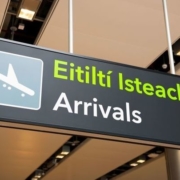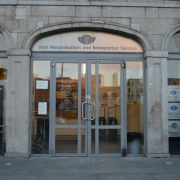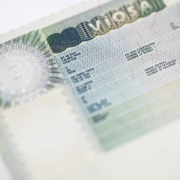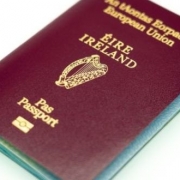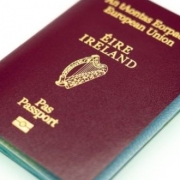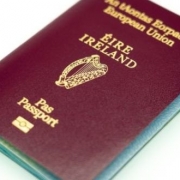Berkeley Solicitors would like to congratulate our client who was successful in her proceedings today.
The applicant is a Somali woman who issued proceedings to challenge the decision of the Minister of Justice refusing long stay visas for her four minor children to join her in Ireland.
The case was brought by way of Judicial Review and was heard by Mr Justice Barr.
In issuing his judgment, Mr Justice Barr found that the key issue in this case was the exceptional humanitarian circumstances that were at play. Justice Barr found that ‘there was no evidence that the decision maker engaged in any real way’ with such factors. Justice Barr submitted throughout his judgment that the respondent failed to take into account ‘the very significant personal dilemma that faced by (the applicant) at the time’ as well as the state of deep political and social unrest faced by citizens in Somalia.
The case concerned a Somali woman who had fled to Ireland to join her sister by way of family reunification under S.18(4) of the Refugee Act 1996. The applicant subsequently applied for her minor children to join her in the State pursuant to the Policy Document on Non-EEA Family Reunification, however her application, and appeal on this decision were refused.
The respondent submitted there was insufficient evidence to corroborate a familial link between the mother and the minor applicants, stating that in entering Ireland:
‘she relinquished her role as the primary caregiver, with the knowledge that the Family Reunification appeal may be refused.’
Mr Justice Barr submitted that such a finding by the Minister was harsh, unfair and irrational.
The respondents further submitted that the applicant was not an eligible sponsor for the visa applications for her children as she had not resided for longer than one year in the State as required by paragraph 16.4 of the Policy Document.
Mr Justice Barr submitted that this case is of an exceptional humanitarian nature and therefore the policy can be departed from in such circumstances pursuant to paragraph 1.12 of the Policy Document:
‘While this document sets down guidelines for the processing of cases, it is intended that decision makers will retain the discretion to grant family reunification in cases that on the face of it do not appear to meet the requirements of the policy. This is to allow the system to deal with those rare cases that present an exceptional set of circumstances, normally humanitarian, that would suggest that the appropriate and proportionate decision should be positive’
The respondents further submitted that the test in finding whether the case in question was of an exceptional humanitarian nature was whether it could be demonstrated that ‘their circumstances are more severe to that of other Somali citizens’
The court found that the decision maker fell into error in making this finding. Mr Justice Barr stated that in order to circumvent the requirements of the policy document it is only necessary for them to establish that they constitute an exceptional set of circumstances. It was found that this ‘does not mean they have to prove their circumstances within the particular country in question are exceptional by the standards of that country.’
Mr Justice Barr also submitted that any submission made by the Minister in relation to errors in spelling on the applicant’s documents, occurring as a result of translations, were of probative value and were made irrationally and unfairly.
Mr Justice Barr further submitted that the financial requirements of the policy document were applied against the applicant without proper consideration of the exceptional humanitarian circumstances.
Mr Justice Barr stated this it was a key issue of the case that the Minister did not engage in a real way the with the exceptional humanitarian circumstances of the case.
The court summarized the findings as follows:
‘In summary, the court holds that to have applied the eligibility criteria and the
financial requirements of the policy in refusing the visa applications on behalf of the
minor applicants, while effectively ignoring the past circumstances of the first
applicant and her children, together with their present circumstances in Somalia, and
in not considering whether these constituted exceptional circumstances, which
warranted a departure from the strict requirements of the policy, rendered the decision
irrational and unfair. On this basis it has to be set aside.’
The court ultimately issued an order of certiorari quashing the Minister’s decision to refuse the visa applications for the four minor applicants.
The full judgement can be accessed via the following link:
https://www.courts.ie/acc/alfresco/231745d1-c37c-45e1-a633-248484d0ebf0/2023_IEHC_316.pdf/pdf#view=fitH
We wish to extend our congratulations to our clients for this ruling.

